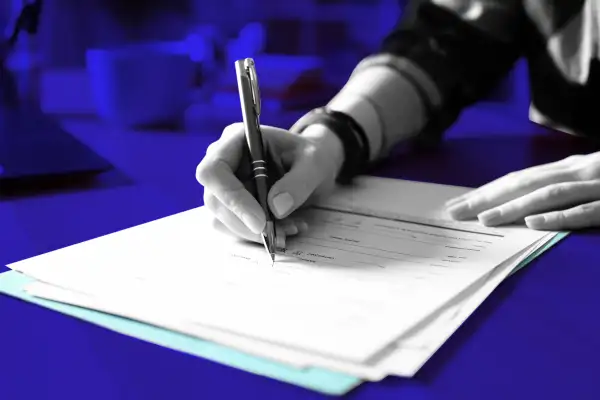Here's Exactly What the Student Loan Forgiveness Application Will Look Like

The application for student loan forgiveness is set to be released soon, and the U.S. Department of Education just released more details about what borrowers can expect.
Borrowers will have to self-certify that they earned below the income cutoff for eligibility, as well as share their Social Security number, date of birth and contact information, according to a video shared on Twitter by the White House on Tuesday. The application does not require any supporting documents. It will be available in both English and Spanish, and it will be accessible on desktop and mobile phones.
Roughly 40 million borrowers are estimated to qualify for the Biden administration's sweeping debt relief plan, which aims to grant up to $20,000 in forgiveness for borrowers who received a need-based Pell Grant while they were in college and up to $10,000 for non-Pell borrowers. (Parents who took out PLUS loans on behalf of their child can also receive up to $10,000.)
But the initiative is facing several legal challenges that have thrown the exact timing of that forgiveness, and the launch of the application that precedes it, into doubt.
When do student loan forgiveness applications open?
The application was originally expected to be released in early October, but the White House preview now says it will open up "later this month."
The likely cause of the delay is one of those aforementioned challenges: Republican attorneys general in six states have questioned the legality of the program. At court hearing scheduled for this week, a federal judge will decide whether to grant an injunction, stopping the rollout of the loan forgiveness program while the case plays out in court.
In a recent legal filing for that case, the Education Department said it would not discharge any debts before Oct. 23, though an injunction could further delay the timeline.
About 8 million borrowers may be eligible to receive the relief without applying because the Education Department already has access to their income information through a recently filed FAFSA or an income-driven repayment plan. Everyone else will have to fill out the application that was previewed Tuesday.
To be eligible, borrowers must have earned less than $125,000 (or $250,000 if married and filing jointly) in either 2020 or 2021. When borrowers certify that they meet the income requirements, they are promising, under penalty of perjury, that they fall below those cutoffs.
After submitting the application, some borrowers will be asked to share additional information with the Education Department in a process known as income verification to prove their earnings fall below the necessary threshold. As many as 5 million borrowers will be selected for this process, according to reporting from Politico.
Most borrowers can expect their loans to be discharged about six weeks after submitting an application, according to an overview of the plan from the office of Federal Student Aid. Officials are recommending borrowers apply by mid-November to have their debt forgiven before payments resume in January.
More from Money:
How to Apply for Biden’s Student Loan Forgiveness Program
Why Student Loan Forgiveness Could Hurt Your Credit Score
Biden Administration Changes Student Loan Forgiveness Eligibility


